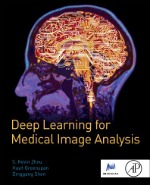The EQUATOR (Enhancing the QUAlity and Transparency Of health Research) Network is “an international initiative that seeks to improve the reliability and value of published health research literature by promoting transparent and accurate reporting and wider use of robust reporting guidelines.” Its mission is to “achieve accurate, complete, and transparent reporting of all health research studies to support research reproducibility and usefulness.”
Currently containing 347 reporting guidelines, the “Library for health research reporting provides an up-to-date collection of guidelines and policy documents related to health research reporting. These are aimed mainly at authors of research articles, journal editors, peer reviewers and reporting guideline developers.”
Many people have heard of Preferred Reporting Items for Systematic Reviews and Meta-Analyses (PRISMA) and CONSORT which was developed to promote more transparent reporting of randomized controlled trials, but there are many more reporting guidelines in existence that may not be as well known. For example, the Standards for Quality Improvement Reporting Excellence (SQUIRE 2.0) is one that anyone considering publishing and disseminating the results of a quality improvement project should know about. Here’s why: It is becoming more and more common for journal publishers to strongly encourage adherence to these reporting guidelines. One such journal,The Joint Commission Journal on Quality and Patient Safety, includes this information in its Guide For Authors:
“The Journal strongly suggests that authors use standard formats as described at http://www.equator-network.org. For example, use CONSORT for randomized trials, STROBE for observational studies, SRQR or COREQ for qualitative studies, CHEERS for economic evaluations, and SQUIRE for quality improvement studies. Authors are strongly encouraged to use the checklists included in these guidelines, and those checklists may be requested during manuscript review to ensure completeness.”
The EQUATOR group has also been working on “compiling specialist collections of resources about reporting for individual specialties”. This oncology specialist collection, called the EQUATOR Oncology Project, “is the first such collection and it is at an early stage of development”. Be sure to check out their “Useful resources and references for oncology researchers”, that include recent “References specifically about reporting issues in oncology”, as well as links to 39 Oncology-related reporting guidelines and their Quarterly Current Awareness Bulletin for oncology clinicians and researchers.
For more information on this and other resources, contact us at the MSK Library!
 Based on a user suggestion, the Library has recently added Deep Learning for Medical Image Analysis to our collection. This book gives a clear understanding of the principles and methods of deep learning concepts, showing how they have been applied to medical image detection, segmentation and registration, and computer-aided analysis, using a wide variety of application areas. Key features of this text include
Based on a user suggestion, the Library has recently added Deep Learning for Medical Image Analysis to our collection. This book gives a clear understanding of the principles and methods of deep learning concepts, showing how they have been applied to medical image detection, segmentation and registration, and computer-aided analysis, using a wide variety of application areas. Key features of this text include